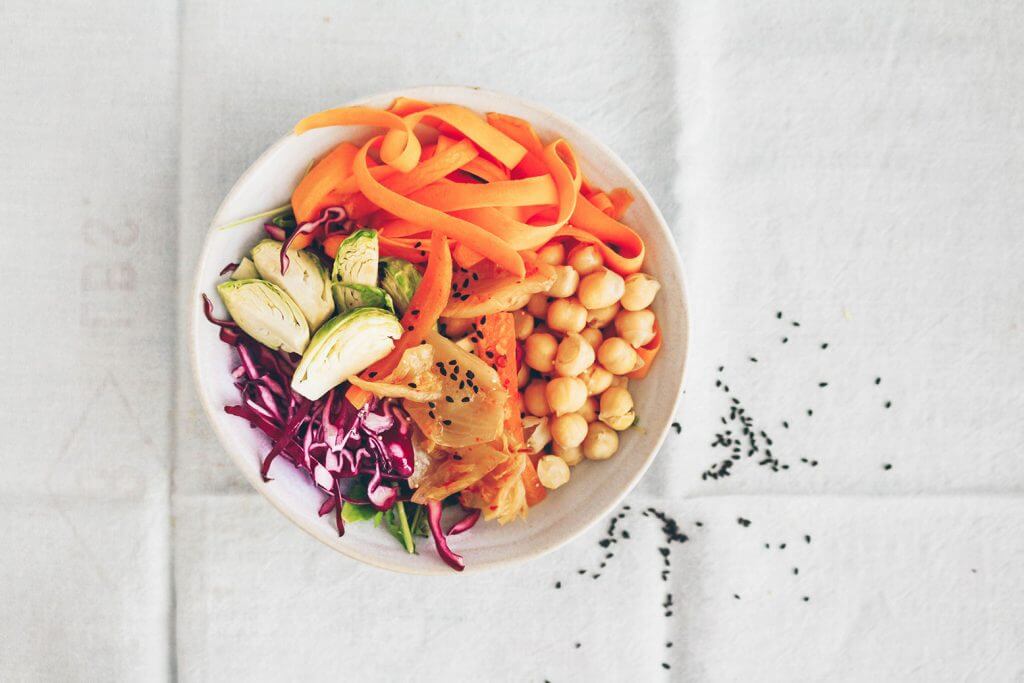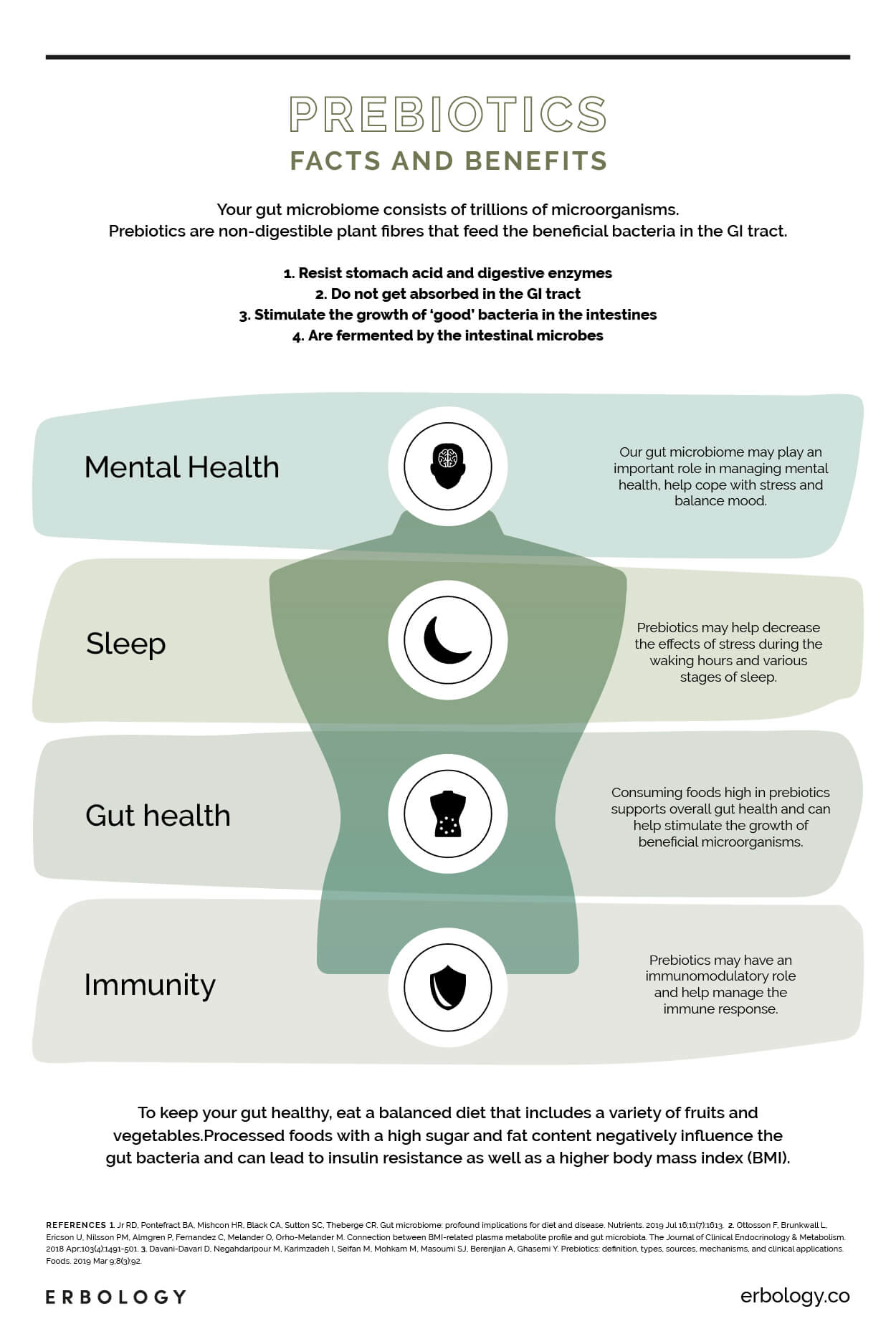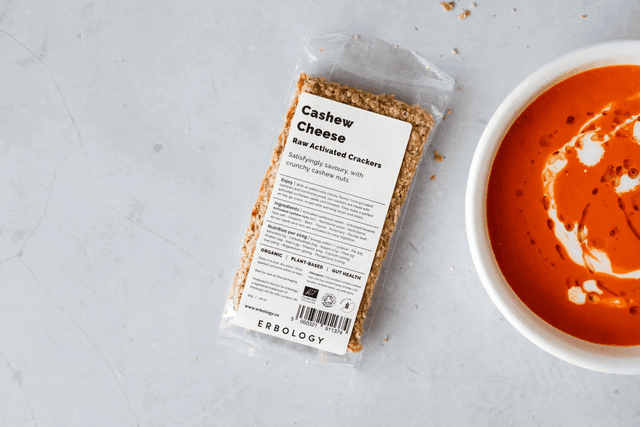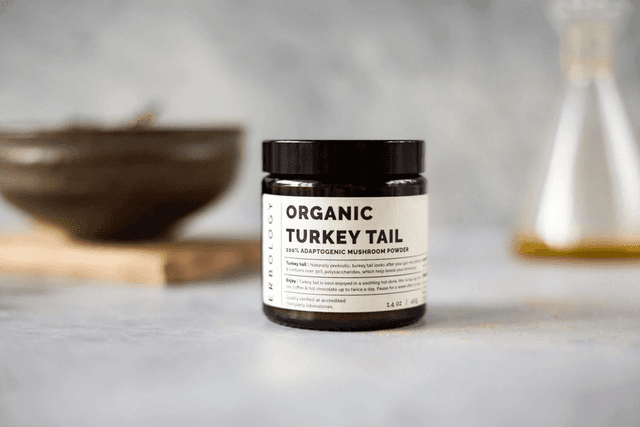17 Oct 2022
What are prebiotics and their gut health benefits?
What are prebiotics?
Prebiotics are unique, non-digestible plant fibres that act as food and stimulate growth among pre-existing good bacteria. This most commonly occurs in the gastrointestinal (GI) tract, where prebiotics can alter the composition of organisms in the gut microbiome. The term ‘gut microbiome’ refers to the trillions of microorganisms living in the GI tract.(1)
The different foods that make up our diet play a major role in the balance of good and bad gut bacteria. Furthermore, once harmful bacteria are regularly fed, they’re able to grow faster, without as many helpful bacteria to prevent them from doing so.
For example, foods with a high sugar and fat content negatively influences the gut bacteria and may contribute to conditions including insulin resistance. In addition, a person with lots of harmful bacteria is likely to have a higher body mass index (BMI).(2)
Many fruits, vegetables, and whole grains are a source of prebiotics. You can find prebiotics in carbohydrates including fibre and resistant starch. This type of starch passes into the large intestine, where the gut microbiome breaks it down. In addition, you can find prebiotics on their own.
In a nutshell, compounds classified as prebiotics:(3)
- Resist stomach acid and digestive enzymes
- Do not get absorbed in the GI tract
- Stimulate the growth or activity of beneficial microorganisms in the intestines
- Are able to be fermented by intestinal microbes
Prebiotics vs probiotics
Prebiotics and probiotics are both pretty big topics in the nutrition world. However, even though they sound similar, the two play different roles in your health. Unlike prebiotics which stimulate growth among pre-existing good bacteria, probiotics are foods containing live bacteria that provide health benefits when consumed, by boosting the number of ‘good’ bacteria in the gut.
There are many foods that contain helpful bacteria. For example, fermented foods are a fantastic source because they contain bacteria that thrive on the naturally occurring sugars or fibres in food. It’s important to note that fermented foods that undergo pasteurisation lose their benefits as the process kills the bacteria. Examples of fermented foods include kefir and kimchi.(4)
However, there is limited evidence on the effectiveness of most fermented foods for gut health, with the majority of studies being of low quality. Kefir is the fermented food most commonly investigated, with evidence suggesting it may be beneficial. But, no human studies have been conducted on the impact of kimchi.
Scientists suggest prebiotics can make more visible differences in gut health in the short term. However, the effects of probiotics may be valuable in the long term. In other words, eating balanced amounts of both may help ensure the right balance of helpful bacteria to keep the gut healthy.(5)

Do prebiotics promote gut health?
There are many claims about the benefits of prebiotics for gut health, but what does the evidence say? Research suggests that prebiotic treatment can benefit people who suffer from irritable bowel syndrome (IBS) with constipation. This is because of its ability to improve the frequency and consistency of stool as well as the time it takes for food to move through the digestive tract. However, an alternative study suggests this isn't the case and that the quality of existing studies can be improved.(6,7)
Although the benefits of prebiotic treatment for IBS are far from definitive, consuming a diet rich in foods high in prebiotics supports overall gut health and can help stimulate the growth of beneficial microorganisms. Additionally, a healthy gut plays an important role in digestion and absorption of minerals.
So, we know that bacteria play a big role in our gut health, but how does it affect our mental health?

Do prebiotics support mental health?
Unfortunately, about 10% of the global population live with a mental health disorder of some kind. The most prevalent were anxiety (4% of the population) and depression (over 3% of the population).(8)
When talking about the link between gut health and mental health, we need to consider our gut bacteria. Scientists have discovered that our gut microbiome may have a very important role in allowing us to manage our mental health. Let’s look into psychobiotics and what role they might play.
Psychobiotics is a term used in research to refer to bacteria that may confer a mental health benefit by supporting the gut health of the consumer. The action mechanisms by which bacteria exert their psychobiotic potential is still unknown. Let's investigate this a little further.(9)
Scientists studied the relationship between the gut and the brain by looking at Bifidobacterium longum 1714. The participants took this psychobiotic for a month, and then switched over to a placebo for a month (not knowing what they were taking). They experienced less stress and anxiety compared to when they were on a placebo. Furthermore, they were also able to complete memory exercises with more accuracy. In the morning, they displayed lower levels of the stress hormone cortisol. However, it's not clear how psychobiotics affect these changes and the sample size of this study was small, at just 22 participants.(10)
Although we start seeing a positive link between the consumption of prebiotics and mental health, further research is needed to form a more definitive answer.
Can prebiotics help with mood?
As we know, mental health problems can cause a wide variety of emotional symptoms including changes in mood.
Studies have looked specifically at prebiotics and how they impact mood. Subjects who took prebiotics displayed lower levels of the stress hormone cortisol in the morning as they had done in previous studies. In addition, subjects also paid greater attention to positive imagery. This suggests, people who consume prebiotics are more likely to see the positive than the negative.(11,12)
It’s worth noting that there’s still a long way to go before research can suggest mental health can be treated with prebiotics. However, there’s also plenty of reason to be pleased.

